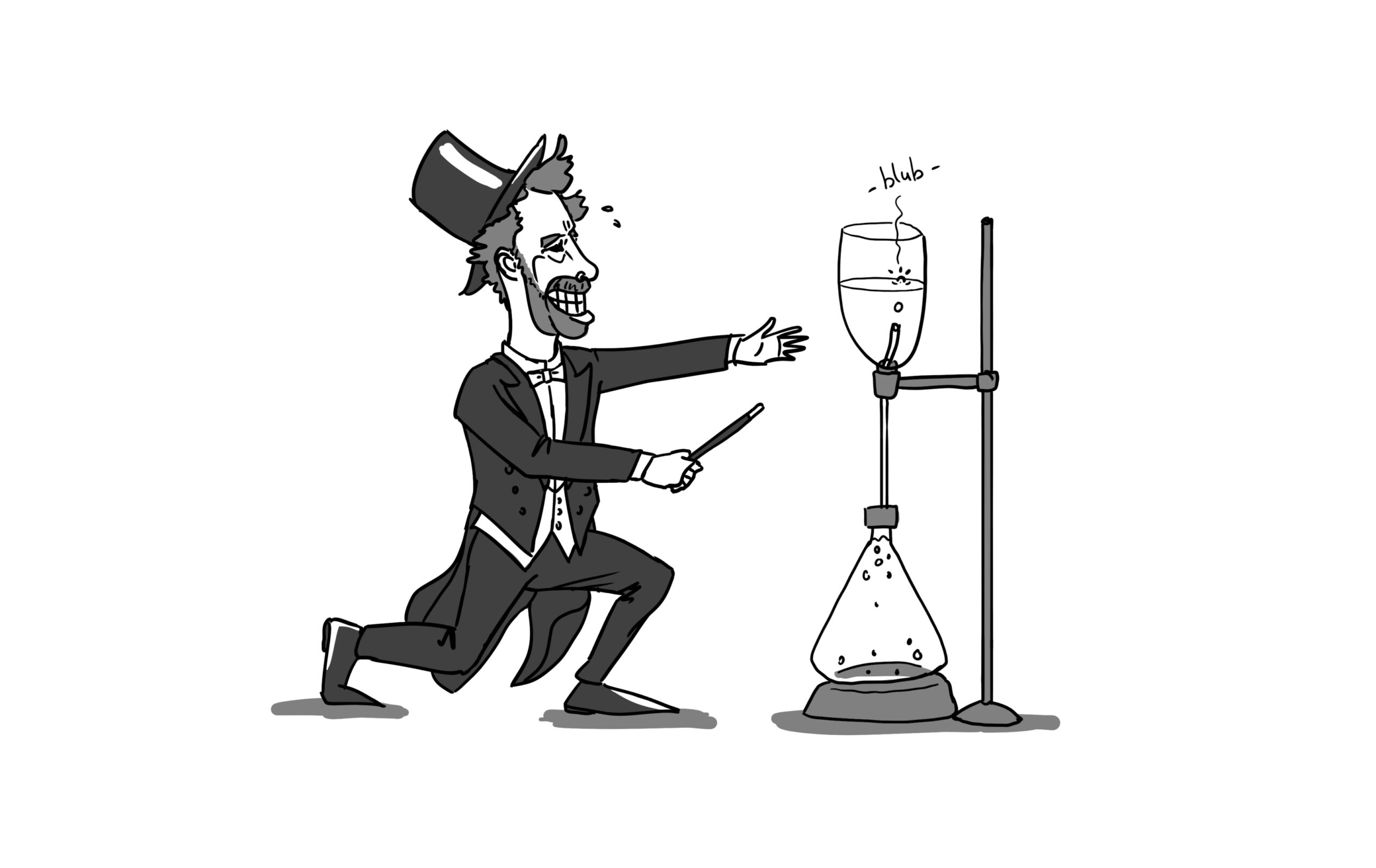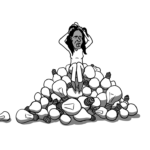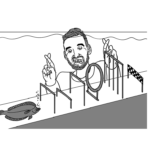A botched experiment, a rejected paper… such things are soon labelled failures in academia. As for talking about them — not done! But that is just what WUR scientists do in this column, because failure has its uses. This time, it’s the turn of Roel Dijksma, who teaches Hydrology & Environmental Hydraulics.
‘In 2019, the University of the Netherlands asked me to give a talk about Iceland and geysers. It would be on a stage in Amsterdam with a live audience and cameras. The editors wanted me to include an experiment. Together, we decided on an experiment that replicates a geyser eruption. That had previously been a theoretical experiment, so I went to the lab and collected things to build a mini-geyser. The result was a set-up consisting of two water reservoirs, one on top of the other, with a connecting hose. The lower reservoir is closed and if you hear it, pressure builds up, like in a pressure cooker. When the pressure gets high enough, the water vapour escapes through the hose into the second reservoir and then shoots up together with that water. In the lab, it all worked perfectly.
‘Before recording started, I was given a strictly timed script. Immediately after my explanation of how geysers work, my experimental design would need to “erupt” to illustrate the theory. So I built my lecture to lead up to the crucial moment, when… nothing happened. The water was boiling, but not enough. Fifty pairs of eyes and several cameras were all watching me. I thought: what now? I looked round the lecture theatre and said, “Hmm, now we’re all watching water boil”. That made everyone laugh. When things go wrong, I stay calm; that’s in my nature. I also have plenty of experience teaching, where things don’t always go smoothly either. As long as you know the theory, it’s easy to improvise if something goes wrong, for example by interacting with your audience or by making a joke, as I did here.
‘As for the recording, the camera team filmed a close-up of the air bubbles, which still looked good on TV. The experience has confirmed my natural optimism: if you don’t look a fool on camera even when an experiment fails, that shows everything will be OK in the end.’

 Illustration Stijn Schreven
Illustration Stijn Schreven 

